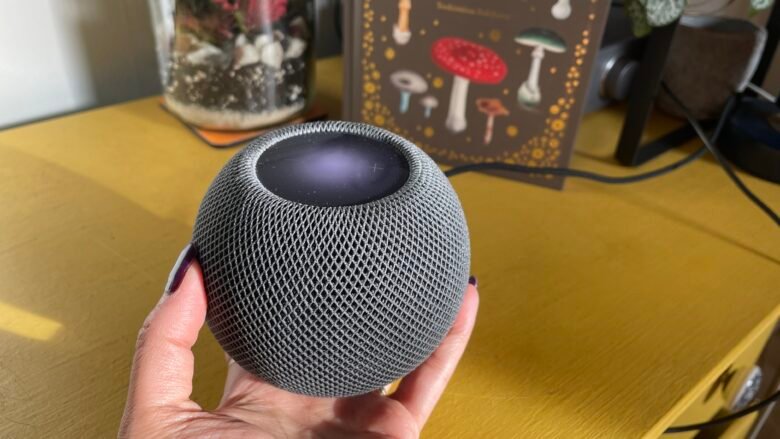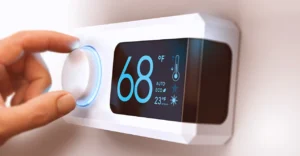Smart speakers like Amazon’s Alexa are impressive devices that can answer basic queries like the capital of Germany or what time it is, while also being capable of adding items or marking events on your calendar. SStudies have revealed that smart speakers can assist both patients and caregivers in various ways. In this article, we’ll explore their benefits further.
1. Control Your Home
Smart speakers offer hands-free control and respond to voice-activated controls, making them easier than computers or smartphones for users. Smart speakers can play music, answer questions, set timers, and control smart devices in the home.
Accessing information quickly and effortlessly is crucial, particularly for people living with cognitive or physical disabilities. Simply asking a smart speaker about today’s weather or current news takes only seconds—less distracting than having to look at a screen!
Smart speakers featuring digital assistants like Alexa, Google Assistant, or Siri are excellent ways to quickly gain answers without taking out your phone from its pocket. Furthermore, some smart speakers also allow you to call or message other users directly through the voice assistant.
2. Set Reminders
One of the easiest features on a smart speaker is setting reminders. This feature makes it easier than ever to take medication on time, water plants properly, or call someone back. People often find having a digital assistant can reduce feelings of isolation. Smart speakers and displays offer reminders for important tasks, can play music or audiobooks, answer questions, tell jokes, and give out weather forecasts.
3. Listen to Music
Smart speakers make it simple and accessible to enjoy any music of your choosing at any time, using only your voice. Plus, you can use them for reading audiobooks, playing games, and asking Alexa or Google for jokes and answers to questions!
Studies have shown that smart speaker use can significantly enhance quality of life for older adults. Yet some users have experienced challenges, including long pauses in conversation that cause the system to misinterpret commands. Companies such as Amazon and Google are actively developing solutions, and for an all-in-one speaker solution, we recommend the Sonos Era 100 (9/10, WIRED Recommends).
4. Get the Day’s Weather
Smart speakers have quickly become one of the most sought-after ways to access weather forecasting information. Weather requests rank among the most frequently used voice commands on Amazon Alexa, Google Home, and Apple Siri—representing one of the five top uses. Communicating forecast information requires skill, as it must be presented briefly yet concisely for readers’ enjoyment.
Smart speakers can also play trivia games and share jokes to reduce social isolation by providing a sense of connectedness. You can access news from numerous media outlets as well as listen to podcasts and audiobooks through them.
5. Ask Questions
Your smart speaker can help with many different tasks and questions, including reminders, checking the weather, and playing music. You can even add items to your shopping list or mark events on your calendar.
Adobe’s Voice Survey found that alarm clocks, Internet searches, and weather checking are the three most popular voice assistant tasks used by people, while smart speakers are increasingly being used for playing music, listening to audiobooks, or telling jokes from Alexa or Google Assistants. Studies on smart speaker feasibility and acceptability in digital health applications have demonstrated their utility in improving social life and patient self-care management, promoting physical activity, and answering medical information queries.
6. Make a Shopping List
Smart speakers not only remind us to do things, but they also make shopping lists to keep us organized during grocery shopping trips. You can easily access this list on your smartphone—and keep yourself organized!
With rising health care costs and staff shortages, researchers are turning to smart speakers as a solution for services traditionally performed at physical locations by providers. Research to date on smart speaker usage in healthcare settings demonstrates its feasibility and acceptability; however, further analysis should identify any barriers that prevent full adoption.
7. Control Your Devices
Smart speakers allow users to control electronic devices using voice commands and can connect with many services. These devices allow them to stream music from various streaming services or set timers for cooking, among many other things. Studies on the use of smart speakers as tools to support patients and providers have yielded positive outcomes in terms of usability and acceptability.
8. Listen to Podcasts
Smart speakers offer more than music; many also use them for listening to podcasts, providing brands with an opportunity to reach consumers via voice assistant-compatible ads that reach out directly. Podcast listeners can utilize smart speakers for quick updates on weather and news throughout their day, which will save them time by eliminating the need to search online or turn on a screen.
Research suggests that smart speakers may assist patients in managing their health and well-being more effectively. Cheng et al. [44] developed an application for managing diabetes using Amazon Echos in a diabetes management program; their goal was to encourage patients to take active roles in managing themselves.
9. Set Timer
Smart speakers make life easier by setting multiple timers that you can modify and verify by name. This feature can help if you have multiple cooking times or need reminders when taking medications.
Smart speakers like Amazon Echo or Google Home devices offer additional ways of helping you wake up more naturally, including gradually turning on smart lights or playing an alarm-setting playlist through an alarm app, such as HomePod’s. You can control all these routines through their respective applications on smartphones.




